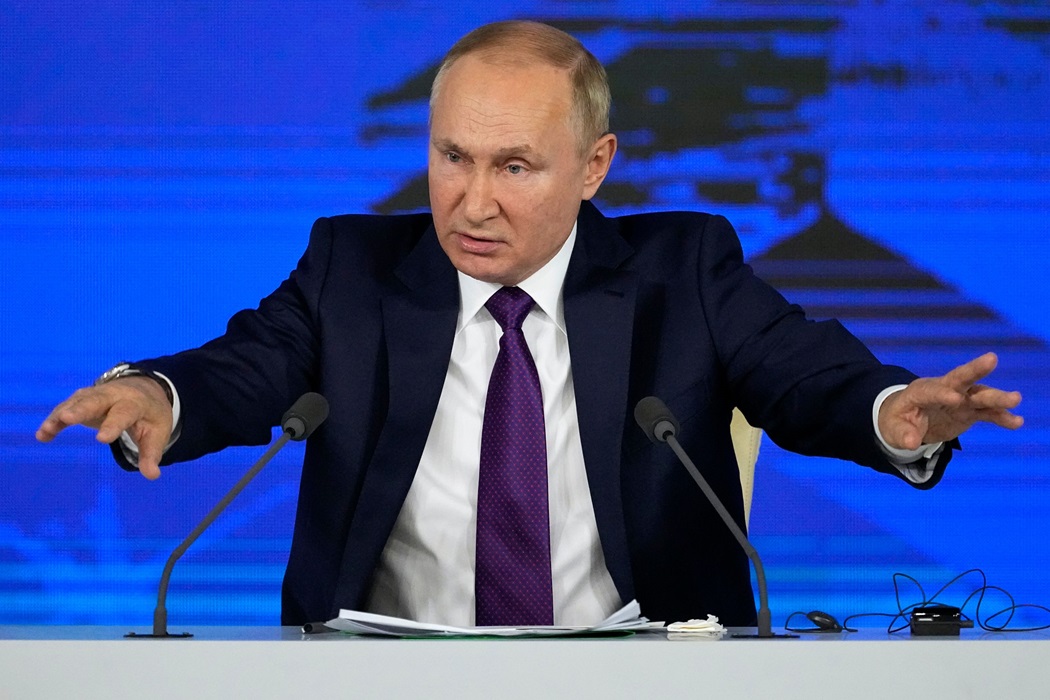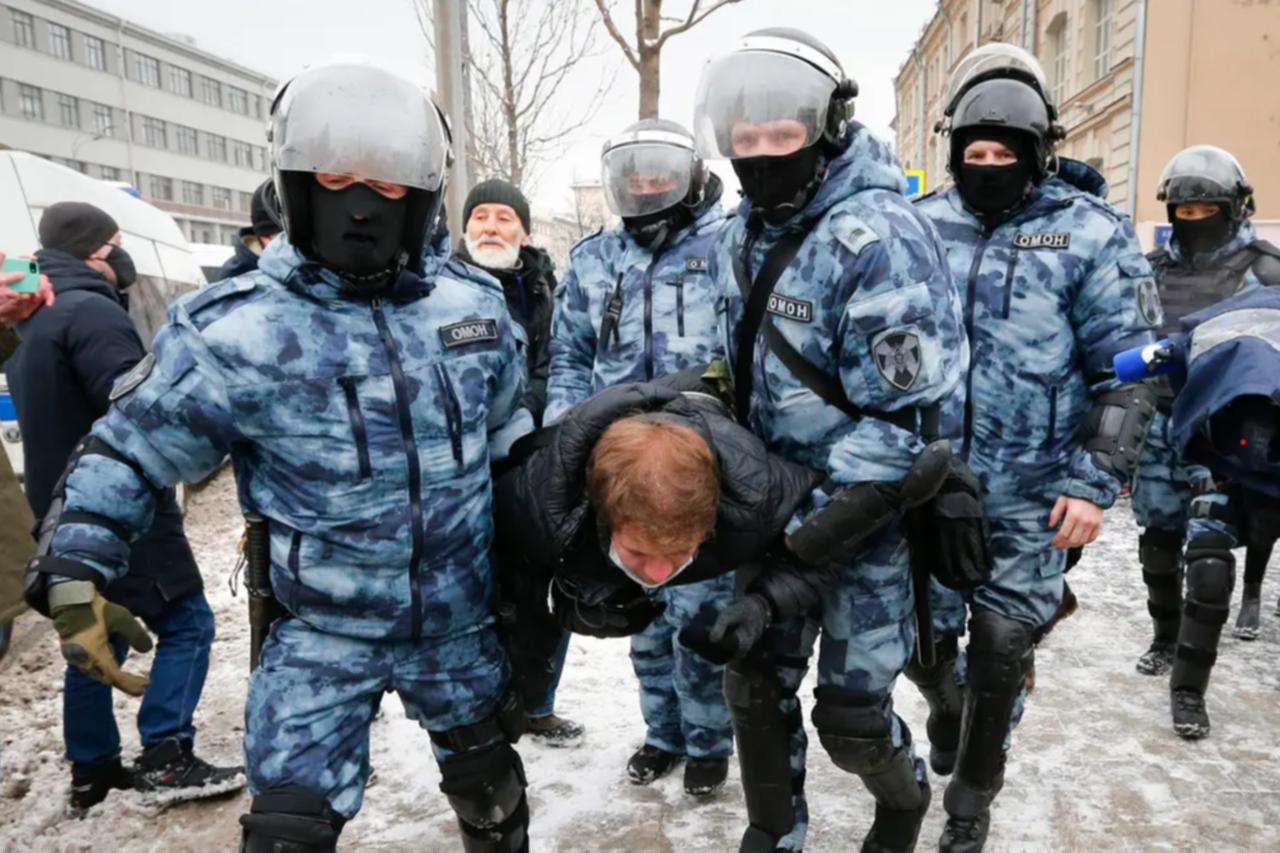
It looks like Russia does not have any red lines. Almost daily, NATO-backed Ukraine inflicts severe damage to the Russian military and energy infrastructure, fully aware that the Kremlin is extremely unlikely to respond seriously. If it does, the consequences cannot be overseen.
By Nikola Mikovic
Ukrainian attacks on Russian territory are no longer breaking news. Hardly anyone was surprised when, on September 18, a major Ukrainian drone attack on Russia’s Tver region triggered a giant blast and forced the partial evacuation of residents near the site of a large Russian arsenal. According to reports, the smoke plume from the Toropets ammo depot was more than 60 miles long.
Interestingly, in 2018, the then-Russian Deputy Minister of Defense, Dmitry Bulgakov, stated that the facility was protected "even from the damaging effects of a nuclear explosion." It appears, however, that it is not protected from Ukrainian drones.
Bulgakov, who was in charge of military logistics for almost 15 years until he was dismissed in September 2022, was arrested in July 2024 on corruption charges. But his former boss, Sergei Shoigu, is still free and continues to act as Russia’s de facto Defense Minister, even though President Vladimir Putin removed him from his official post in May 2024.
Ever since, Shoigu has been running Russia's Security Council. He often makes official visits to Iran and North Korea – Moscow’s only allies against the Western-sponsored Ukraine – reportedly aiming to assure arms supplies to the Russian military. But where there is Shoigu, there is corruption. Over the years, Putin’s ally has often been described as one of the most corrupt Russian officials. Therefore, corruption schemes are expected to remain integral to Moscow’s military deals with Pyongyang and Tehran if Shoigu controls the arms trade business.
But the Russian-Iranian-North Korean “axis of the sanctioned” and their growing military cooperation do not seem to represent a severe threat to the West. Although all three countries use the same anti-Western rhetoric, on the ground, they do not take any steps that could cause major damage to the Western geopolitical interests.
Iran also does not seem to have any redlines
Two and a half months after Israel assassinated Hamas leader Ismail Haniyeh in Tehran, the Islamic Republic, despite numerous threats, has not responded to the Israeli action. While its proxy, Hezbollah, has not properly responded to the Israeli assassination of the Shia group’s Fuad Shukr in Beirut on July 30, 2024, either.
In the meantime, in a joint CIA- -Mossad operation, Israel allegedly placed explosive material in a large batch of Taiwanese-European-made pagers and walkie-talkies imported into Lebanon. It was destined for Hezbollah, resulting last week in tens of deaths and thousands of injuries all over the tiny Middle Eastern nation. Even Mojtaba Amani, the Iranian ambassador to Lebanon, sustained “very severe eye injuries.”
Despite that, Hezbollah and Tehran are expected to either turn a blind eye to the latest Israeli escalation or to “respond” in such a way that will cause more harm to themselves than to Israel. They have been using both strategies for years. As a result, Israel continues to raise the stakes, knowing that its opponents are very unlikely to retaliate seriously.
Ukraine and the Nord Stream blasts
Ukraine and the West seem to have adopted the same approach regarding Russia. If the Wall Street Journal's claims are valid, it is Kyiv that blew up the Nord Stream pipelines, causing severe damage not only to the Kremlin but also to its Western partners.
Although Russia’s State-owned Gazprom, based in Moscow, is the sole shareholder of the Nord Stream 2 project and has pledged to provide up to 50 per cent of its financing, the remaining funds came from German companies Wintershall and Uniper, as well as Royal Dutch Shell, French ENGIE, and the Austrian oil and gas company OMV. Similarly, Nord Stream 1 is owned by a consortium of 5 energy companies: Gazprom, Wintershall Dea AG, PEG Infrastruktur AG (E. ON), N.V. Nederlandse Gasunie and ENGIE.
Even though Western corporations suffered from the Nord Stream blasts, Western governments do not seem willing to jeopardise their relations with Ukraine over what they call a “minor” accident. From their perspective, the impact of the Nord Stream sabotage on European economies is considered “collateral damage.”
In return, NATO countries publicly gave Kyiv the green light to strike Russian territory with Western-made long-range missiles.
Even NATO Secretary General Jens Stoltenberg has recently concluded that Putin’s “red lines” have been crossed several times without consequences. It is, therefore, a matter of time before Ukraine begins striking Russian territory with Western-made missiles.
How will the Kremlin respond?
It is not very probable that Russia will nuke Western countries where the children and grandchildren of Russian oligarchs and Kremlin officials live and study. If it ever decides to use nuclear weapons, it will be either against Ukraine – in a relatively limited manner – or, perhaps, against itself, striking its territory.
Such an action would then allow the West to accuse the Kremlin of a nuclear escalation and to give Ukraine atomic missiles to strike Russian territory. And that would be the primary consequence of Putin’s empty threats, half-measures, and non-existent red lines.






